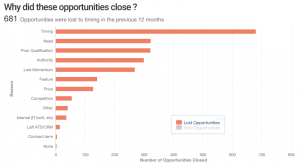Scaling a business can prove challenging, especially in the ever-growing ecommerce space. Even if growth is steady, there are a variety of things you still need to do for continued success. If you ease up on the gas, you may find customers jumping ship and seeking out your competitors.
Growth is always good. But when it comes to scaling, growth takes on a new form. Scaling a business is about revamping several business processes to handle a mass influx of business. And there is no harder business to scale than ecommerce.
Why? As a savvy ecommerce business owner, you know that selling products online is more than just offering a service. It’s about providing a continuous powerful customer experience, exceptional customer support, logistics, sourcing of materials, and much more.
If you’re ready to go from trickling growth to full on scaling, the following top three ways to scale your ecommerce business in 2020 may prove valuable.
1. Put The Horse Before The Cart By Scaling Customer Support First
Many ecommerce business owners and managers will begin scaling efforts with adding more categories, products, and creative marketing campaigns to move more inventory. This is all a big part of scaling your ecommerce business, but it may be the wrong approach.

What happens when you amp up inventory and sales? Customer support issues follow, and follow quickly. And if you fail to have the best customer support available, the customer experience you’ve worked so hard to provide derails. This leads to bad ratings and reviews, returns, and more, which could full-stop your scaling efforts.
Instead, scale from within by putting customer support assets in place to handle the rise in customer needs. This will ensure you are operating at scale across all areas of your business.
2. Build Better Ecommerce Logistics And Supply Chain Management Systems
With your customer support scalable and ready to field more customer tickets, don’t jump head first into amping up your inventory just yet. A significant increase in orders and the material resources needed to fulfill more orders can break your logistics and supply chain management systems pretty quickly.
First, look at key ways to improve supply chain and logistics by halting in-house fulfillment. For instance, you can utilize a fulfillment service that stores your inventory and does all elements of the pick, pack, and ship process. This is where you really need to be honest with yourself.
Can you manage fulfillment if your ecommerce business scales by 50 percent? What about 100 percent? You not only save time by building better supply chain management and logistics systems, you can also save money on packaging and shipping costs. Scaling means making these tough decisions, even if you have a warehouse.
3. Take Your Ecommerce Business Global To Reach More Customers That Want Your Products
This may seem like a very challenging endeavor for many ecommerce business owners. But going global is easier than you may think. And the profitability is certainly worth the investment. For instance, the footwear segment in Israel has an estimated worth in 2019 of $ 150 million and a 21+ percent year-over-year growth.

That’s a huge yearly growth for any online seller of shoes to capitalize on.
To take your ecommerce business global, you can collaborate with localization professionals that can help you translate your ecommerce site to any language. Some of these companies can even manage your paid search ad campaigns and other marketing initiatives.
For global orders, you can lean on a 3PL to ship orders internationally, as well as setting up a shipping broker in your desired new market to help streamline import fees and other customs regulations. And all this can be set up in a few short months. It really is that easy to bridge the global ecommerce gap.
Are You Ready To Scale Your Ecommerce Business In 2020?
Ecommerce is a booming industry. With global online sales estimated to reach $ 6.5 trillion, double from 2019, there are very few reasons why you shouldn’t scale your ecommerce business in 2020. And don’t be short-sided by staying local. To scale, you need to consider taking your ecommerce business global.
But before you call your manufacturers and put a massive order in, think what support you’ll need to maintain a high level of customer satisfaction. If you sell more, you can bet more customer support issues will arise. And if you sell more, you’ll definitely need a supply chain management and logistics system that can handle increased shipping needs, forward and reverse.
This coming year may be your time to scale your ecommerce business. The question is, are you ready?
Digital & Social Articles on Business 2 Community
(20)
Report Post






